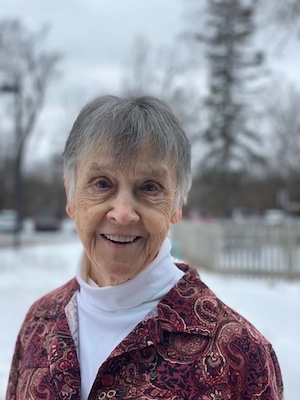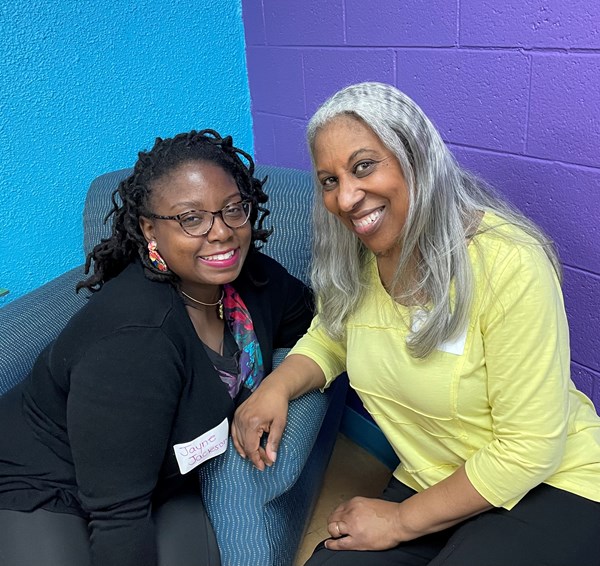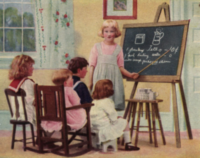
Pat Montgomery
The ubiquity and widespread acceptance of homeschooling as a valid educational option for American families can obscure the fact that homeschooling freedoms were hard-fought.
The ubiquity and widespread acceptance of homeschooling as a valid educational option for American families can obscure the fact that homeschooling freedoms were hard-fought.
Homeschooling didn’t become legally recognized in all U.S. states until the 1990s, with families who chose to teach their own children in earlier years often harassed and sometimes criminally charged with truancy. The DeJonge family of Michigan was among them. On a fall day in 1984, the DeJonges were visited at their home by the Michigan Department of Social Services telling them they were breaking the law by homeschooling. A year later, the parents were charged and convicted of educating their children without a state teaching license.
The DeJonges then endured a long legal battle, supported by the Home School Legal Defense Association, resulting in a Michigan Supreme Court ruling on May 25, 1993 that secured homeschooling rights in Michigan and removed barriers, such as teacher certification requirements, for homeschooling parents.
On that same day, the Michigan Supreme Court also ruled in another case, Clonara v. State Board of Education, that similarly expanded homeschooling rights throughout the state. That case against the Michigan State Board of Education was brought by Pat Montgomery, who founded the Clonlara School in 1967 and had adapted Clonlara’s materials for the many at-home learners throughout Michigan and the U.S. who were attracted to the school’s learner-centered, secular approach. Today, Clonlara serves more than 2,000 students through its online school, as well as additional students at its on-campus location in Ann Arbor.
After teaching in both Catholic schools and public schools, Montgomery grew disillusioned with the coercive nature of conventional schooling. “I didn’t think that anywhere I taught was a proper atmosphere for children. Their opinions were not respected. They were never sought,” Montgomery, now in her late-80s, told me in a recent interview.
Inspired by A.S. Neill, who founded the celebrated, self-directed Summerhill School in England in 1921, Montgomery built Clonlara as an alternative to traditional schooling that would encourage choice and autonomy.
From the beginning, Clonlara’s educational philosophy resonated with many families, including those who lived far from the school’s Ann Arbor location. They wanted to access Clonlara’s curriculum as homeschoolers. Montgomery found it troubling that those homeschooling parents in the 1970s and 1980s weren’t freely able to educate their children as they chose. She filed her lawsuit against the state board of education in 1985, arguing that the board’s rule-making procedures were unjust.
“I think that’s where the great indignance came from,” Montgomery’s daughter, Chandra Montgomery Nicol, said of her mother’s work in bringing the lawsuit.“Not only are these parents qualified and able in their own right as parents, you, Department of Education, can’t enforce your rules against them. Only the legislature can bring those rules. And that’s what the judge decided was true,” said Nicol, who was Clonlara’s first student and now serves on the school’s Board of Directors.
The pivotal Michigan court rulings 30 years ago, in both the DeJonge and Clonlara cases, as well as a third case related to homeschooling rights, were among the last in a long line of consequential legal decisions throughout the U.S. guaranteeing homeschooling rights for all American families who wanted that option.
“The court’s decisions represented a milestone in the educational freedom movement,” said Molly Macek, director of education policy at Michigan’s Mackinac Center for Public Policy. “They solidified homeschool rights and recognized a parent’s right to choose how and where they educate their children. Empowering parents in the learning process allows them to provide the best possible education for their children.”
As homeschooling has moved from the margins to the mainstream over the past two decades, and especially over the past three years of education disruption, today’s homeschooling families benefit from the courage and perseverance of pioneers like the DeJonges and Montgomery.

Homeschooling mother Jayne Jackson (left) gets support at Engaged Detroit from longtime homeschooling parent, Marla Wellborn. (Photo: Kerry McDonald)
Among those beneficiaries are the more than 100 Detroit homeschooling families who are members of Engaged Detroit, a homeschooling resource center launched by Bernita Bradley in 2020. What started as a small, informal support network for pandemic homeschoolers has grown to serve more than 200 learners throughout the city, offering homeschooling classes and activities, curriculum and assessment materials, and access to one-on-one coaching with an experienced homeschooling parent.
One such coach is Marla Wellborn, who began homeschooling her two children 30 years ago—just after it became fully legal to do so in Michigan. “We made that choice because we didn’t have faith in the system,” said Wellborn. One of her children is currently completing a Ph.D. at Vanderbilt University, while the other attended the University of Michigan and is a full-time minister. Wellborn now works with Engaged Detroit families, including Jayne Jackson, a birth and death doula, who homeschools her daughter and appreciates the encouragement and guidance that veteran homeschooling parents like Wellborn provide.
Today’s homeschooling parents can choose from a variety of educational philosophies and curriculum offerings, participate in a growing number of microschools and hybrid homeschool programs, gain support from places like Engaged Detroit, and customize an educational approach that meets their children’s individual needs and interests.
More than 50 years after founding Clonlara, and 30 years after helping to secure homeschooling rights in Michigan, Pat Montgomery is optimistic about the future growth of education options for families. She is particularly hopeful that more empowering, individualized, learner-centered models like Clonlara will continue to spread. “We have to trust each other, and we especially have to trust our children,” said Montgomery.
Her daughter Chandra agrees, acknowledging that both adults and children need autonomy and choice in order to flourish: “What we need to learn—what we need to be creative, confident humans — is autonomy. We must have autonomy. We must be able to make our own choices.”
Written by Kerry McDonald for the Foundation for Economic Education ~ June 2, 2023
~ The Author ~
 Kerry McDonald has a Master’s degree in education policy from Harvard University and a B.A. in Economics from Bowdoin College. She lives in Cambridge, Massachusetts with her husband and four never-been-schooled children. Kerry writes about education choice, parental empowerment, homeschooling, and natural learning on her blog, Whole Family Learning.
Kerry McDonald has a Master’s degree in education policy from Harvard University and a B.A. in Economics from Bowdoin College. She lives in Cambridge, Massachusetts with her husband and four never-been-schooled children. Kerry writes about education choice, parental empowerment, homeschooling, and natural learning on her blog, Whole Family Learning.

 FAIR USE NOTICE:
FAIR USE NOTICE: